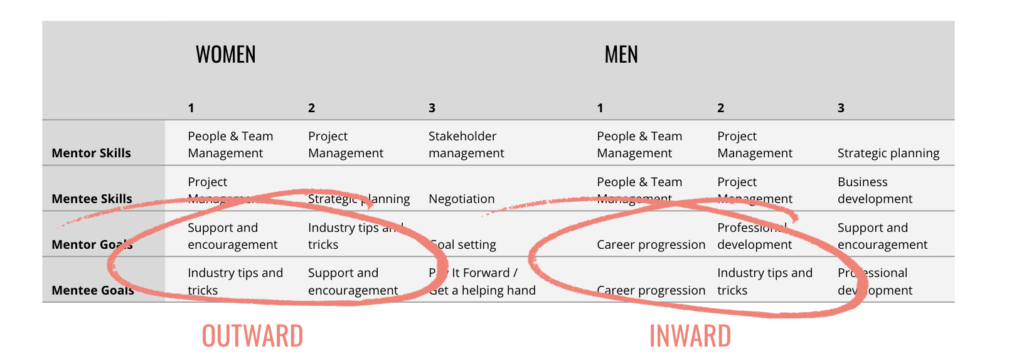
At London Tech Week, we presented at the event: So you want to hire and retain more women? Together with our partner organisations Work180 and Applied, we shared insights on how a holistic approach to attracting, hiring and developing women will ensure you build a sustainable pipeline of female talent – and keep them! We also dove into the 4 key ingredients for getting the most from your mentoring program.
Let’s explore these, now:
1. Know your ‘WHY’
A good mentor program requires thoughtful planning but more importantly, if we are truly to move the needle on mentoring as a tool to impact diversity outcomes, commitment from the leaders of the business is imperative. In order to get them on board, you’ll need to start with a clearly defined ‘why.’
All too often mentor programs are started with good intentions, but good intentions aren’t enough to ensure your program’s success. It’s important to define, for both the organisation and the individuals, why this program exists.
Having a clearly defined “why” will also guide what success metrics you need to be tracking.
—
2. Understand your cohort’s skills and goals
Mentoring is not performance management. This is an opportunity for the individual to articulate their personal goals and objectives. Giving them the power to define their own why ensures greater commitment, more meaningful matches and better outcomes.
And broadly speaking what drives women to seek mentorship is different to their male counterparts.
After analysing Mentorloop data from over 5000 mentors and mentees what we found was that while the skills people wanted to develop for both genders were similar, the overarching goals and aspirations of participants differed.

When surveyed on their goals, men were quick to identify goals that were inwards focussed – ‘career progression’ ‘professional development’ and the desire to work on ‘skills gaps’.
Women, however, were found to be outwards focussed; they searched for ‘support and encouragement’, ‘industry insights’ and ‘paying it forward’. Attributes of a leadership style that leads to more connected teams.
It’s these nuances that are so important to highlight as, without them, incorrect matches are often made, resulting in both the mentee and the mentor having a poor experience.
—
3. Data-driven matching
Matching based on clearly defined criteria, such as what participants want to learn, their interests and where they want to go in their careers, not only sets up the match, it gives the mentor context on how they can help.
But doing this at scale can be difficult and that’s where a software platform can help. Using data to generate a match removes bias and the tendency for mini-me mentoring to occur. It also ensures transparency in matching, ensuring no one gets left behind.
It can be difficult to know where to start, so we have a library of questions and answers proven to improve the quality of matches we are happy to share if that’s of interest to anyone.
—
4. Measure your success
In terms of measuring success, it’s important to have a long term view. You may start with proposing a pilot program focussing on female talent but if we are to truly build a culture of mentoring, we need to move away from just offering ‘special programs for special people’
Moving to a company-wide approach just like Xero will inevitably; have an impact on the bottom line around those big-ticket items the senior leaders care about – engagement, increased productivity and retention.
But more importantly, you would have built a fairer and nicer place to work where all can thrive and feel supported while getting the most from your mentoring program.
Start your journey of a guided culture of mentoring in your organisation, by getting in touch with one of our mentoring specialists, today.




